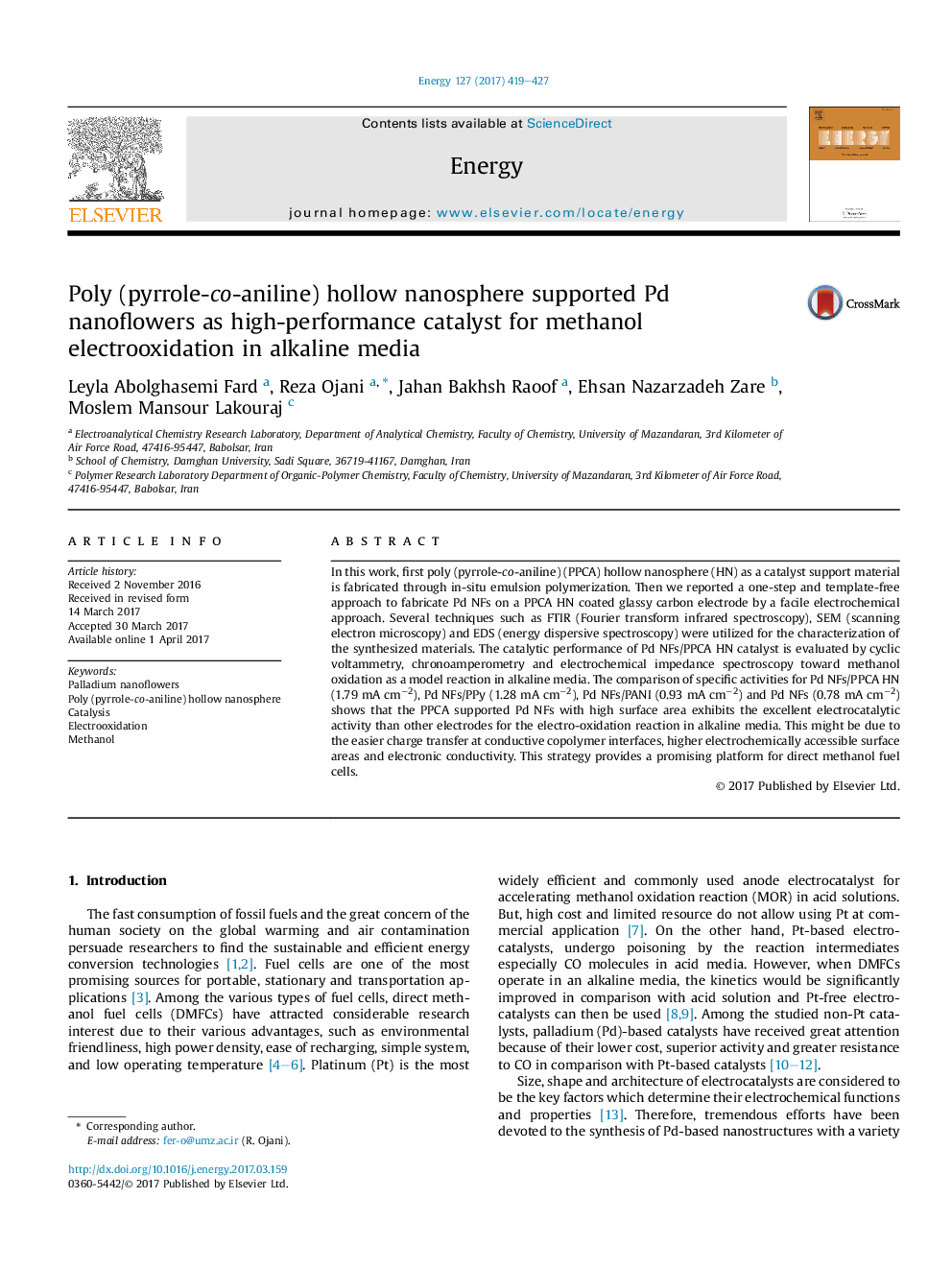| Article ID | Journal | Published Year | Pages | File Type |
|---|---|---|---|---|
| 5476822 | Energy | 2017 | 9 Pages |
Abstract
In this work, first poly (pyrrole-co-aniline) (PPCA) hollow nanosphere (HN) as a catalyst support material is fabricated through in-situ emulsion polymerization. Then we reported a one-step and template-free approach to fabricate Pd NFs on a PPCA HN coated glassy carbon electrode by a facile electrochemical approach. Several techniques such as FTIR (Fourier transform infrared spectroscopy), SEM (scanning electron microscopy) and EDS (energy dispersive spectroscopy) were utilized for the characterization of the synthesized materials. The catalytic performance of Pd NFs/PPCA HN catalyst is evaluated by cyclic voltammetry, chronoamperometry and electrochemical impedance spectroscopy toward methanol oxidation as a model reaction in alkaline media. The comparison of specific activities for Pd NFs/PPCA HN (1.79Â mAÂ cmâ2), Pd NFs/PPy (1.28Â mAÂ cmâ2), Pd NFs/PANI (0.93Â mAÂ cmâ2) and Pd NFs (0.78Â mAÂ cmâ2) shows that the PPCA supported Pd NFs with high surface area exhibits the excellent electrocatalytic activity than other electrodes for the electro-oxidation reaction in alkaline media. This might be due to the easier charge transfer at conductive copolymer interfaces, higher electrochemically accessible surface areas and electronic conductivity. This strategy provides a promising platform for direct methanol fuel cells.
Keywords
Related Topics
Physical Sciences and Engineering
Energy
Energy (General)
Authors
Leyla Abolghasemi Fard, Reza Ojani, Jahan Bakhsh Raoof, Ehsan Nazarzadeh Zare, Moslem Mansour Lakouraj,
